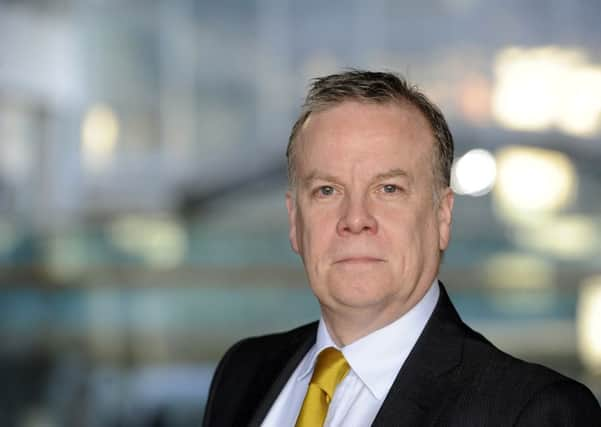Comment: Martin Currie | Commonwealth Games


Legg Mason’s acquisition of the Edinburgh fund manager came out of the blue, although there has been talk in the sector and the City for some time that it looked vulnerable.
The US firm will no doubt restore some further stability and give Martin Currie a firmer foundation on which to grow. It did seem, however, that after the troubles it had in China at the turn of the decade, followed by the first loss in its history, the firm had returned to growth with one or two key new players helping it build on its strengths.
Advertisement
Hide AdAdvertisement
Hide AdIt now joins a group of affiliate companies within Legg Mason which will marry it to its Australian equities business in line with its policy of creating fewer but larger investment operations. Both the Scottish and Australian teams should benefit from exposure to a greater range of institutional clients.
Martin Currie’s acquisition is either a blow or a bonus, depending on your point of view. In Scotland it has been part of the fund management sector for 130 years but in global terms it is a small player that has become smaller with assets a quarter of their 2007 level.
The problems in China, which involved a conflict of interest issue, led to some steep fines from the regulators and plunged the firm into an unprecedented and damaging crisis. Last year it returned to profit and reported a return of confidence in its Asia business. Selling it, according to chief executive Willie Watt, will allow it to fulfil its long-term growth plans, though this deal looks a little like a rescue.
It’s the Commercial Games, and why not?
There will be a few happy faces around Glasgow after the generally well-received opening ceremony gave the Commonwealth Games a huge lift-off on a night to remember.
It was a brave decision by the organisers to go for a stereotypical display of Scottish icons which at first looked a little corny but by the end was seen for what it was – a piece of stereotypical Glasgow humour. The city, if nothing else, showed it could laugh at itself.
It was also a huge showcase for Scottish products, displayed like never before. Images of cans of Irn-Bru (made from girders) supporting the Forth Bridge and dancing Tunnock’s tea cakes will last long in the memory of those watching.
This was unashamed commercialism, and why not? Big sporting events are among the best means of promoting a local economy and some of the numbers surrounding the Glasgow Games are impressive. Data from construction industry intelligence service Barbour ABI reveal that more than £769 million worth of construction contracts have been completed to upgrade the city’s sports facilities, with nearly half of this accounted for by the 35-hectare athletes’ village, valued at £300m. The Emirates Arena, which includes the Sir Chris Hoy Velodrome, and SSE Hydro national arena at Pacific Quay absorbed £217m.
The data also show that £120m was spent sprucing up existing facilities in the city and beyond, including a £30m refurbishment of the Royal Commonwealth Pool in Edinburgh. Further positive news is that more than £50m is being spent on regeneration work.
This is just to build and prepare the facilities. Many more millions in spin-off business awaits those who have a stake in what, by the way, is also a huge sporting event.
Twitter: @TerryMurden1